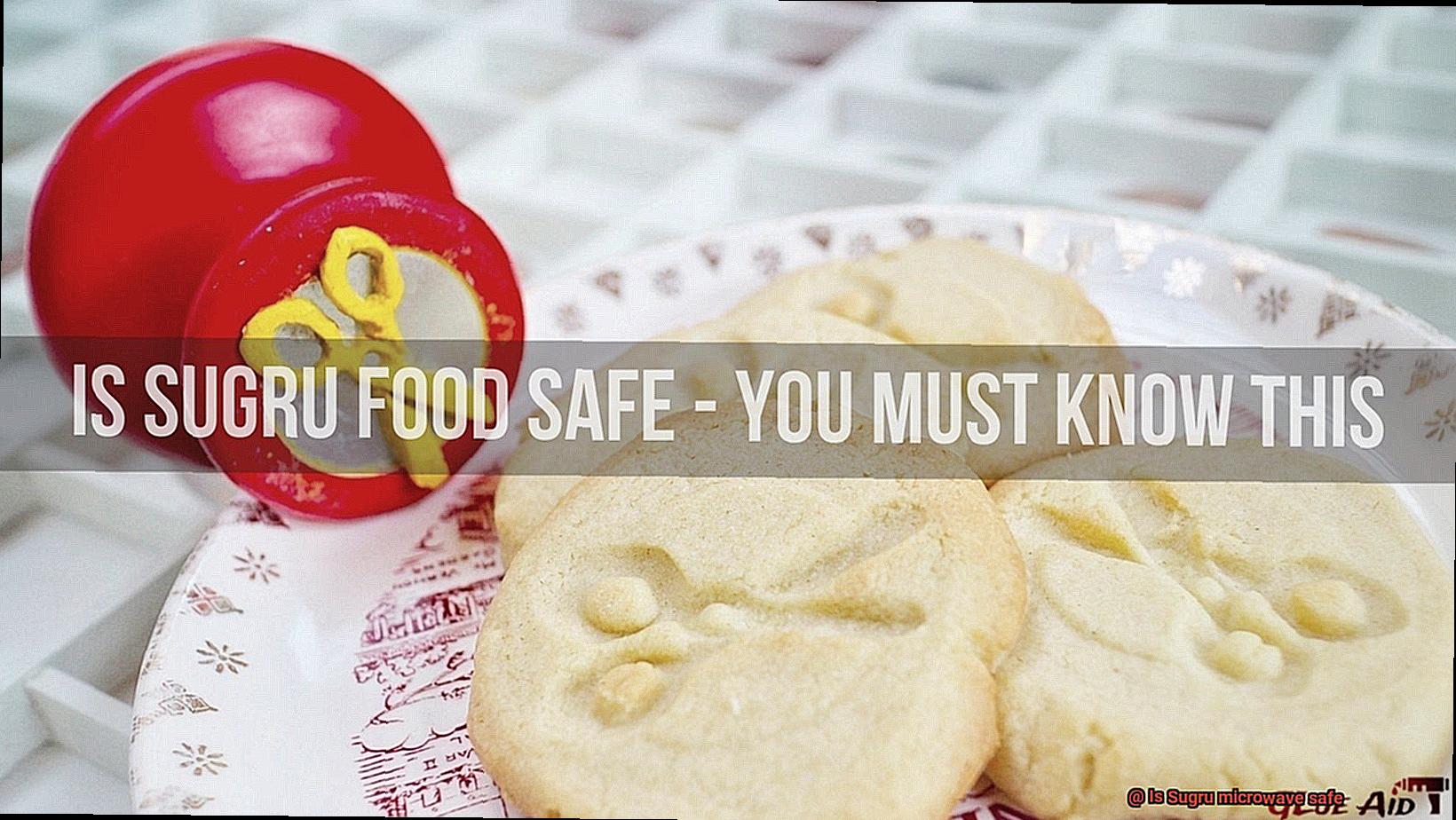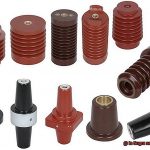Are you tired of searching high and low for a simple solution to fix your kitchen essentials? Well, look no further because Sugru is here to save the day.
This amazing moldable glue has taken the DIY world by storm with its versatility and durability. But hold up, before you go sticking it in your microwave, you might be wondering: is Sugru microwave safe?
Don’t sweat it – we’ve got all the answers right here. In this blog post, we’ll dive deep into the safety aspects of using Sugru in microwaves, debunking any worries or doubts you may have.
So let’s get ready to unravel the truth about Sugru’s microwave safety features.
Is Sugru Microwave Safe?
Contents
- 1 Is Sugru Microwave Safe?
- 2 The Dangers of Using Sugru in the Microwave
- 3 Alternative Materials for Microwave-Safe Repairs and Projects
- 4 Storing Sugru Properly to Maintain Quality and Effectiveness
- 5 Pros and Cons of Using Sugru for DIY Projects and Repairs
- 6 How to Use Sugru Safely and Effectively
- 7 Tips for Working with Sugru Around Food
- 8 Common Misconceptions About Using Sugru in the Microwave
- 9 Conclusion
Sugru, the go-to adhesive for DIY enthusiasts, is known for its versatility and ability to tackle a wide range of projects. However, when it comes to the microwave, caution is crucial. In this article, we will delve into why Sugru is not suitable for microwave use and explore alternative options that are both safe and effective.
Why isn’t Sugru microwave safe?
- Material Composition: Sugru is composed of a silicone-based material that can melt or deform when exposed to high temperatures. The consequences? Potentially releasing hazardous chemicals, toxic fumes, or even catching fire. Microwaving Sugru is a recipe for disaster.
- Manufacturer’s Caution: FormFormForm Ltd., the manufacturer of Sugru, explicitly states that it is not designed for direct contact with food or high-temperature applications like microwaving. Adhering to these instructions ensures both your safety and the preservation of your microwave and food.
Alternatives for microwave-safe repairs:
- Food-Safe Adhesives: If you’re looking to repair something that will encounter food and require microwave use, opt for food-safe adhesives specifically formulated for such scenarios. These adhesives can withstand high temperatures without releasing harmful substances.
- Microwave-Safe Epoxy: For repairs or creations destined for the microwave, microwave-safe epoxy adhesives are an excellent choice. These adhesives provide a robust bond and can endure the heat generated by microwaving without compromising safety.
- Food-Grade Silicone Sealants: Seek out silicone sealants explicitly labeled as food-grade and microwave-safe. These sealants are engineered to withstand high temperatures without releasing toxins or compromising the taste and safety of your food.
The Dangers of Using Sugru in the Microwave
We all adore the microwave for its unparalleled convenience. It swiftly warms our food and effortlessly cooks meals in a flash. But, hold your horses. Before you even consider placing that beloved Sugru in your trusted microwave, let me halt you right there. As an expert in all things DIY, it is my duty to warn you about the perils of using Sugru in this high-powered appliance.
Now, don’t get me wrong, Sugru is a remarkable moldable glue. It’s the perfect companion for all your DIY projects and repairs, boasting exceptional strength and versatility. But alas, when it comes to the microwave realm, it’s a resounding no-no. You see, Sugru is predominantly composed of silicone, which possesses a melting point that is anything but robust. When subjected to the scorching temperatures inside a microwave, Sugru can liquefy faster than ice cream on a sweltering summer day.
However, that’s not the end of the story. Sugru also contains additives and fillers that are far from microwave-friendly. These substances react when exposed to heat, releasing harmful chemicals into your food or even permeating the air you breathe. A truly terrifying prospect indeed.
But fret not. There exists an elegant solution to this conundrum: adhere faithfully to the manufacturer’s instructions and guidelines. The packaging unequivocally states that Sugru should never be used in the microwave. Simple as that. Your safety is of paramount importance, so don’t take any unnecessary risks.
If you find yourself in dire need of repairing or attaching something microwave-safe, fear not. There are alternative options at your disposal. Seek out food-safe adhesives or microwave-approved epoxy. These products are meticulously crafted for high temperatures and pose no harm to your appliances or your health.
Alternative Materials for Microwave-Safe Repairs and Projects
Get ready to explore the world of alternative materials for microwave-safe repairs and projects. Prepare yourself for some thrilling information that will take your microwave adventures to new heights.
Let’s start with our beloved Sugru. Oh, how we adore its magical moldable powers. But, alas, in the microwave, Sugru is a big no-no. Its silicone composition cannot withstand the heat, turning it into a gooey mess faster than ice cream on a scorching summer day. And beware of those additives and fillers that release harmful chemicals when exposed to heat. Keep Sugru far away from your microwaves.
But fear not, brave DIY enthusiasts. Alternative materials have come to the rescue. First up, ceramic-based adhesives. These heroes are specially engineered to endure high temperatures and are safe for microwaves. Repair your cherished ceramic mug or plate with ease using ceramic adhesive.
Now, for those complex projects involving different materials like glass or plastic, fear not – microwave-safe epoxy is here. This versatile adhesive bonds various materials without releasing any harmful substances when heated. It’s like the superhero of glues.
But what about textiles? We’ve got a solution for that too. When creating microwaveable heating pads or oven mitts, choose materials labeled as microwave-safe. Opt for natural fibers like cotton or linen without synthetic additives or coatings that could release harmful chemicals when heated. Safety first, folks.
Remember to always follow the manufacturer’s instructions and guidelines when working with alternative materials. This ensures correct and safe usage. Keep your microwaves happy and your projects microwave-safe.
Storing Sugru Properly to Maintain Quality and Effectiveness
Sugru, the incredible moldable glue that can fix just about anything, needs a little TLC to stay in tip-top shape. To ensure its quality and effectiveness, follow these simple storage tips.
- Seal it tight: After opening a packet of Sugru and using what you need, seal the rest tightly. Pop it back into the packet and give it a good squeeze to remove any excess air. This prevents drying out and maintains flexibility.
- Keep it cool and dry: High temperatures are the enemy of Sugru. Avoid direct sunlight and heat sources. Find a cool and dry spot to store it. Remember, moisture is not Sugru’s best friend either. Store it in an airtight container or bag to protect it from sneaky moisture.
- Safety first: While Sugru is non-toxic, it can be a choking hazard if swallowed in large quantities. Keep it out of reach of children and pets. Store it up high, away from curious hands and paws.
- Check the expiration date: Like milk or that questionable yogurt hiding at the back of your fridge, Sugru has a shelf life too. Using expired Sugru might not give you the results you’re looking for, so double-check those dates.
Pros and Cons of Using Sugru for DIY Projects and Repairs
Look no further than Sugru, the moldable glue that can revolutionize your DIY projects and repairs. In this article, we’ll delve into the pros and cons of using Sugru, giving you a comprehensive understanding of its capabilities.
Versatility:
Sugru’s moldable nature is its secret weapon. Whether you need to mend a cracked smartphone case or fashion custom solutions for diverse household needs, Sugru can be molded into any shape or size. It’s like having a magical glue that bends to your imagination.
Strength and Durability:
Sugru isn’t just your run-of-the-mill adhesive; it’s a superhero in the world of bonding. Once cured, it forms an unbreakable bond that can withstand regular wear and tear. From fortifying fragile furniture joints to fixing shattered objects, Sugru provides long-lasting solutions that stand the test of time.
Heat and Cold Resistance:
Extreme temperatures got you worried? Fear not, because Sugru can handle scorching heat near heat sources and freezing cold in refrigerators or freezers. This makes it an ideal choice for indoor and outdoor projects where other adhesives might crumble under pressure.
Waterproof and Flexible:
Leaks and cracks are no match for Sugru’s waterproof properties. Once cured, it becomes impervious to water, making it perfect for fixing leaky pipes or creating watertight seals around sinks or bathtubs. Moreover, its flexibility ensures that it can adapt to movements and vibrations without compromising its integrity.
Color Options:
While Sugru comes in various colors, the range might not satisfy those craving an expansive palette like paint or markers offer. However, the available color options are still enough to add some pizzazz to your DIY projects.
Curing Time:
Patience is a virtue when it comes to Sugru. It typically takes 24 hours to fully cure, so if you’re in need of a quick fix, this might not be the best option. However, planning ahead and giving it the time it needs will ensure the best results.
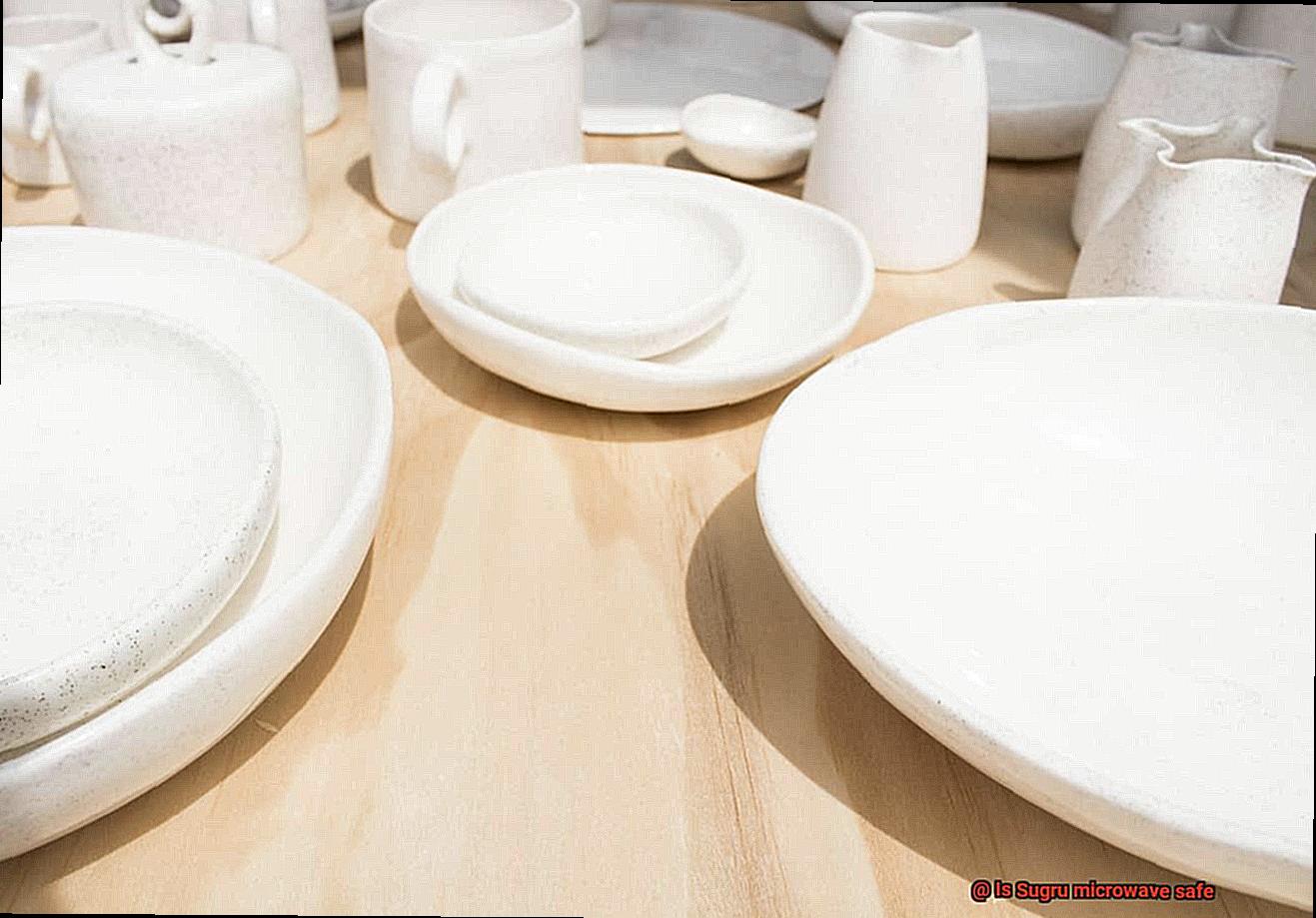
Load-Bearing Applications:
Although Sugru boasts strength and durability, it’s not suitable for load-bearing applications. So, if you’re fixing something that requires significant weight-bearing, it’s best to explore other alternatives.
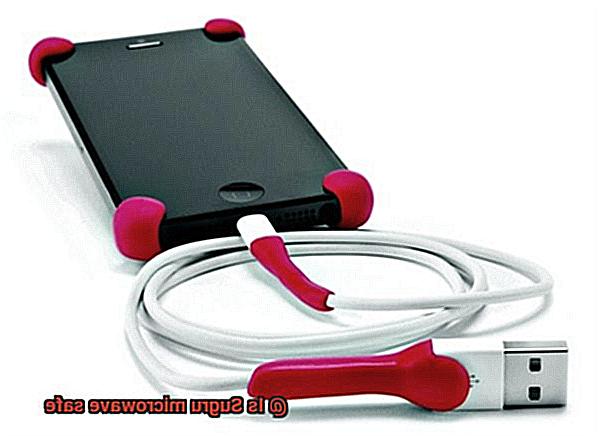
Shelf Life:
Keep in mind that Sugru has a limited shelf life once opened, usually around six months. To prevent wastage, consider purchasing only the quantity you need for your project.
How to Use Sugru Safely and Effectively
Look no further than Sugru, the versatile and moldable adhesive that can help you repair, customize, and create like never before. With its popularity soaring and countless applications at your fingertips, it’s important to know how to use Sugru safely and effectively. Let’s dive into the world of Sugru and discover the tips and tricks that will make your projects a success.
Safety First:
While Sugru is generally safe to use, it’s crucial to take precautions to avoid any potential risks. Always read and follow the instructions provided by the manufacturer. This will guide you on the recommended uses, limitations, and safety precautions associated with Sugru. Remember, knowledge is power.
No Microwaves, Please:
When it comes to using Sugru in the microwave, it’s a big no-no. Sugru is not designed to withstand high temperatures, which means using it in the microwave can lead to melting, burning, or even toxic fumes. Yikes. If you need to repair or modify something microwave-safe, opt for materials explicitly designed for that purpose, such as microwave-safe adhesives or silicone molds.
Prepare for Success:
To achieve optimal results with Sugru, preparation is key. Start by ensuring the surface you’re applying Sugru to is clean and free from dirt, dust, or grease. A clean surface will help Sugru adhere better and provide a stronger bond. Remember to do a small test patch on a hidden area to ensure compatibility with your material.
Apply with Care:
When it’s time to apply Sugru, protect those precious hands of yours by wearing gloves. While Sugru is non-toxic and skin-friendly, some individuals may experience irritation or allergic reactions. Safety first. After applying Sugru, give it ample time to cure according to the manufacturer’s instructions. Rushing the process may result in weaker bonds or less effective results.
Store for Success:
To keep your Sugru fresh and ready for action, store it properly. Keep it in its original packaging or store it in an airtight container to prevent drying out. Proper storage ensures your Sugru stays effective and ready for all your future projects.
Tips for Working with Sugru Around Food
If so, Sugru, a versatile adhesive, can be a valuable tool for various repairs and creations. However, it’s crucial to take precautions when using Sugru around food to ensure safety. This guide provides five essential tips to help you navigate working with Sugru in the kitchen.
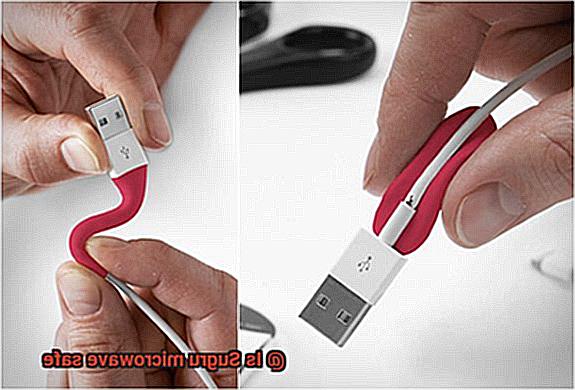
Choose food-safe Sugru:
Always opt for the food-safe version of Sugru, which is explicitly labeled. This ensures that no harmful ingredients will come into contact with your food, guaranteeing its safety.
Clean and prepare surfaces:
Before applying Sugru to any surfaces that will touch food, ensure they are clean and free from dirt or grease. Proper preparation ensures better adhesion and prevents potential contamination.
Avoid direct contact with perishable foods:
While Sugru itself is generally safe, it’s best to avoid direct contact between perishable foods and the adhesive. This precaution mitigates health risks associated with contamination.
Use Sugru as a sealant or handle:
A popular application of Sugru in the kitchen is using it as a sealant or handle for utensils or appliances. This allows indirect contact with food while minimizing risks. For instance, create a custom grip on a knife handle or seal gaps in containers to prevent leakage.
Allow sufficient curing time:
After applying Sugru, be patient and allow it to cure fully before using it near food. Curing time varies but generally takes at least 24 hours. Ensuring proper curing reduces the risk of transferring chemicals or contaminants to your food.
Common Misconceptions About Using Sugru in the Microwave
Today, we embark on a journey to dispel the misconceptions surrounding the use of Sugru in the microwave. So grab a hot beverage and prepare to have your doubts shattered.
Myth: Repairing Microwave-Safe Containers
Sugru is a heat-resistant wonder, but it’s not suitable for fixing or sealing microwave-safe containers. Microwaves generate heat differently from conventional ovens, making Sugru susceptible to deterioration or releasing potentially harmful chemicals. It’s best to seek out alternative solutions when repairing containers meant for microwave use.
Myth: Fixing Electrical Components
Don’t be fooled into thinking Sugru can salvage wonky microwave buttons or control panels. Remember, Sugru is not an electrical insulator. Using it on electrical parts can compromise your safety and potentially damage your beloved microwave. Let’s leave the electrical repairs to the professionals, shall we?
Myth: Coating the Interior for Easy Cleaning
The allure of easy cleaning with a Sugru-coated microwave interior. But hold your horses. Sugru is not approved for direct contact with food. Moreover, subjecting it to high temperatures over time can result in discoloration and unpleasant odors. Let’s keep our microwaves smelling fresh without compromising food safety.
Following Manufacturer’s Instructions
It may seem like common sense, but it bears repeating: always adhere to the manufacturer’s instructions when using Sugru or any other product. They know their craft. If you require a microwave-safe adhesive or sealant, seek out specifically designed products labeled for such use. Remember, safety trumps convenience every time.
wXmkpUzl7ys” >
Conclusion
In conclusion, it is abundantly clear that Sugru and microwaves do not mix. The silicone-based composition of Sugru leaves it vulnerable to melting or warping under the intense heat of a microwave. This not only poses a risk of hazardous chemicals being released, but also the potential for toxic fumes or even a full-blown fire. The manufacturer of Sugru explicitly warns against using it in direct contact with food or subjecting it to high temperatures like those found in microwaves.
Fortunately, there are plenty of alternative options available for microwave-safe repairs and projects. Look for adhesives specifically formulated for use in microwaves, such as food-safe adhesives or microwave-safe epoxy adhesives. These materials are designed to withstand the scorching temperatures without compromising your safety or releasing harmful substances.
When dealing with Sugru, proper storage is key to maintaining its quality and effectiveness. Keep any unused portions tightly sealed to prevent drying out and store them in a cool, dry place away from direct sunlight and sources of heat.
Remember, always follow the manufacturer’s instructions when using Sugru or any other product. Safety should never be sacrificed for convenience.

